Hamsters are popular pets, and while most of them live long and healthy lives, tumors do occasionally occur in these little animals.
In this blog post, we will discuss 10 tumor symptoms in hamsters. If you notice any of these tumor symptoms, please take your hamster to the veterinarian as soon as possible for a diagnosis.
Early detection is key when it comes to treating tumors in hamsters!
- Key Takeaway
- Warning Signs: 10 Tumor Symptoms in Hamsters
- 1. Rapid weight loss
- 2. Lethargy
- 3. Decreased appetite
- 4. Digestive problems, including constipation or diarrhea
- 5. Tumors located in the abdomen may cause the hamster to have a distended belly
- 6. Tumors can also compress other organs causing additional symptoms such as difficulty breathing
- 7. Difficulty urinating
- 8. Tumors may bleed causing blood in the stool or vomit
- 9. Hair loss
- 10. Increased thrist
Key Takeaway
- Tumor symptoms in hamsters can include physical changes such as visible lumps or sores, behavioral modifications like a decreased appetite or change in behavior, and other signs such as smelly breath, weight loss, or excessive drooling.
- Hamsters can develop various types of tumors, with the most common ones being lymphomas, plasmacytomas, mammary tumors, atypical fibromas, papillomas, and in some cases, hemangiosarcomas and myeloid leukemias.
- Treating tumors in hamsters generally involves methods such as surgical removal of the tumor, hormone regulation for glandular tumors, and experimental treatments like ethanol injections, tailored to the type and location of the tumor and the overall health of the hamster.
- Preventing tumors in hamsters involves providing a balanced diet, maintaining a clean living environment, conducting regular veterinary check-ups, and avoiding exposure to known carcinogens.
Types of Tumors That Hamsters Can Develop
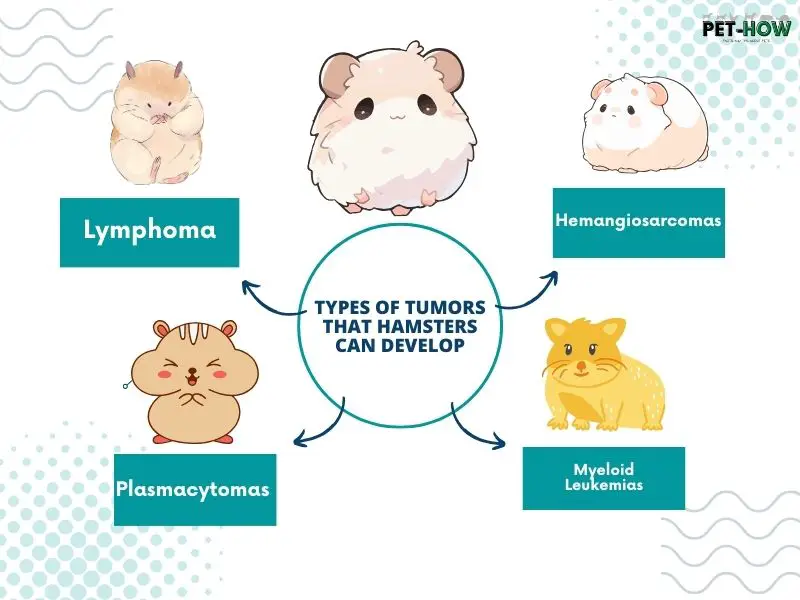
Hamsters can develop a variety of tumors, with lymphoma being one of the most common types, along with plasmacytomas, hemangiosarcomas, and myeloid leukemias, among others.
Lymphoma in Hamsters
Lymphoma is a cancer that originates from the immune system. As a veterinarian, I’ve observed that this type of tumor is quite prevalent in hamsters, especially as they age. It’s often characterized by swollen lymph nodes and can affect multiple organs in the body, leading to various symptoms such as weight loss, lethargy, and loss of appetite.
Plasmacytomas in Hamsters
Plasmacytomas are a type of tumor that originates from plasma cells, a type of white blood cell. In my practice, I’ve seen hamsters present with these tumors, which can be localized or widespread. Symptoms can vary widely depending on the location and size of the tumor.
Hemangiosarcomas in Hamsters
Hemangiosarcomas are malignant tumors that arise from the cells lining the blood vessels. In my experience, these tumors can grow rapidly and often cause internal bleeding, which can lead to symptoms like weakness, pale gums, and sudden collapse.
Myeloid Leukemias in Hamsters
Myeloid leukemias are a type of blood cancer that starts in the bone marrow. In my years as a vet, I’ve treated hamsters with myeloid leukemia, which often presents with symptoms like fatigue, loss of appetite, and anemia due to the overproduction of abnormal white blood cells.
Warning Signs: 10 Tumor Symptoms in Hamsters
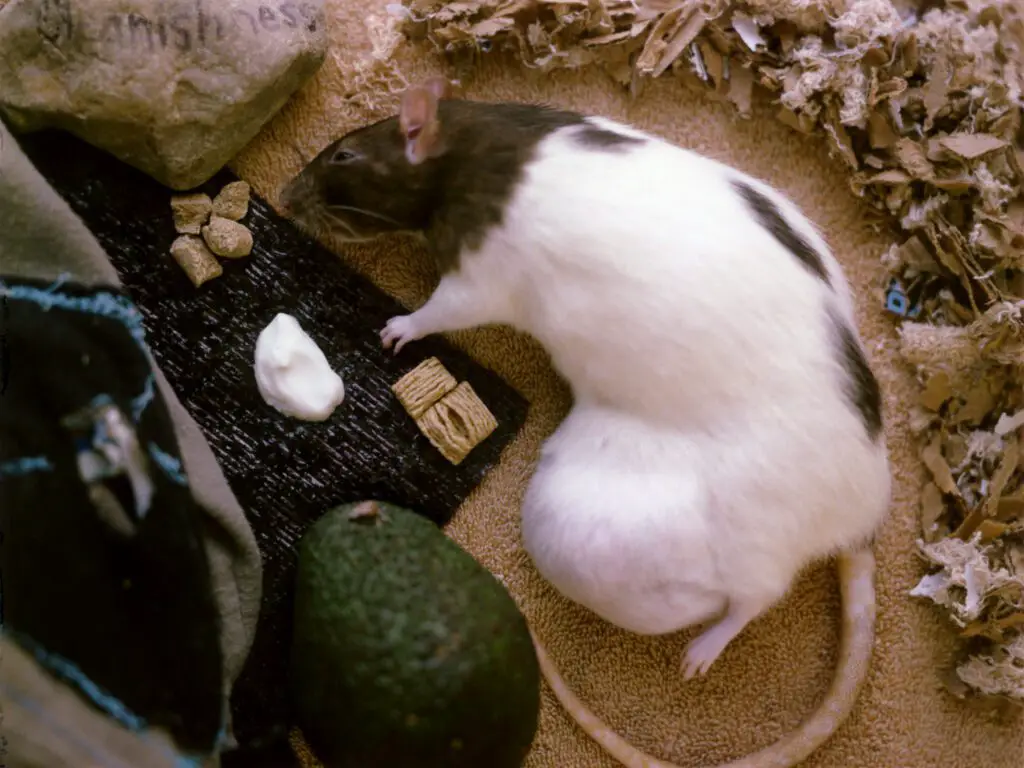
Like all animals, hamsters can also get serious illnesses like tumors. If you are not a vet, you probably won’t know the signs of a sick hamster.
This is why I came up with a list of 10 symptoms that a hamster with a tumor might exhibit.
1. Rapid weight loss
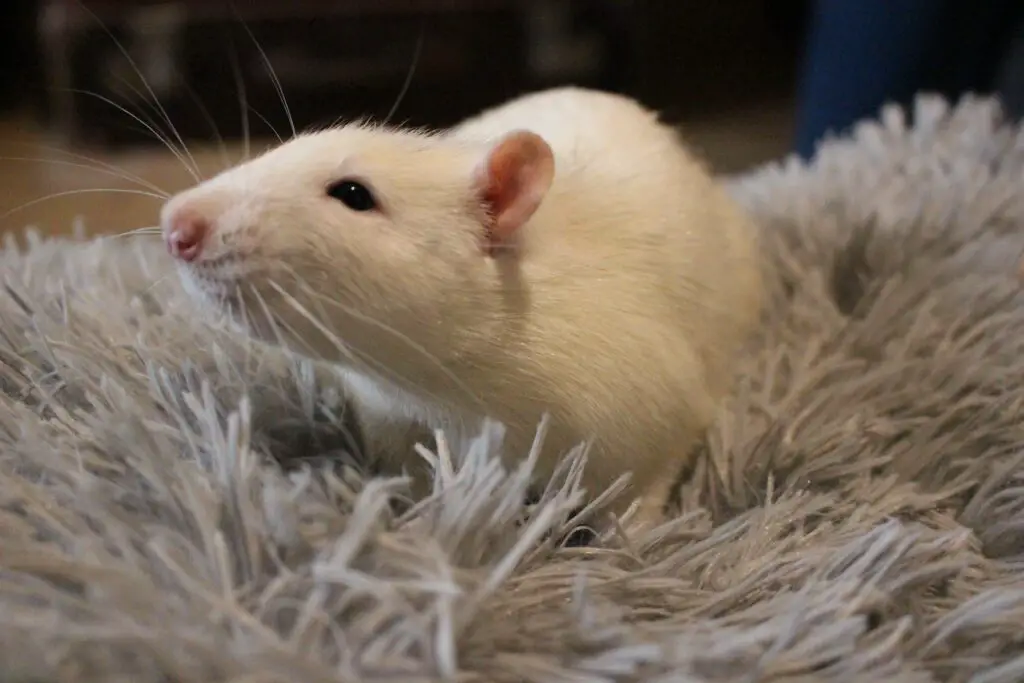
Tumors in hamsters can cause rapid weight loss as the body diverts nutrients and energy to fight the abnormal growth, leaving less for overall health and maintenance.
Hamsters are susceptible to a wide variety of tumors, which can occur in any part of the body. Tumors are typically benign, but they can grow to a large size and compress surrounding tissues. In some cases, tumors may also secrete hormones that disrupt the normal functioning of the body.
One of the most common symptoms of a tumor in hamsters is weight loss. This can be caused by the tumor itself, as it takes up valuable space and prevents the hamster from being able to eat normally.
Additionally, the hormones secreted by the tumor can interfere with the hamster’s metabolism, preventing them from properly digesting food and absorbing nutrients.
In some cases, surgery may be used to remove the tumor, but many hamsters will continue to lose weight even after treatment. The exact cause of weight loss in hamsters with tumors is still not fully understood, but it is likely due to a combination of factors.
2. Lethargy
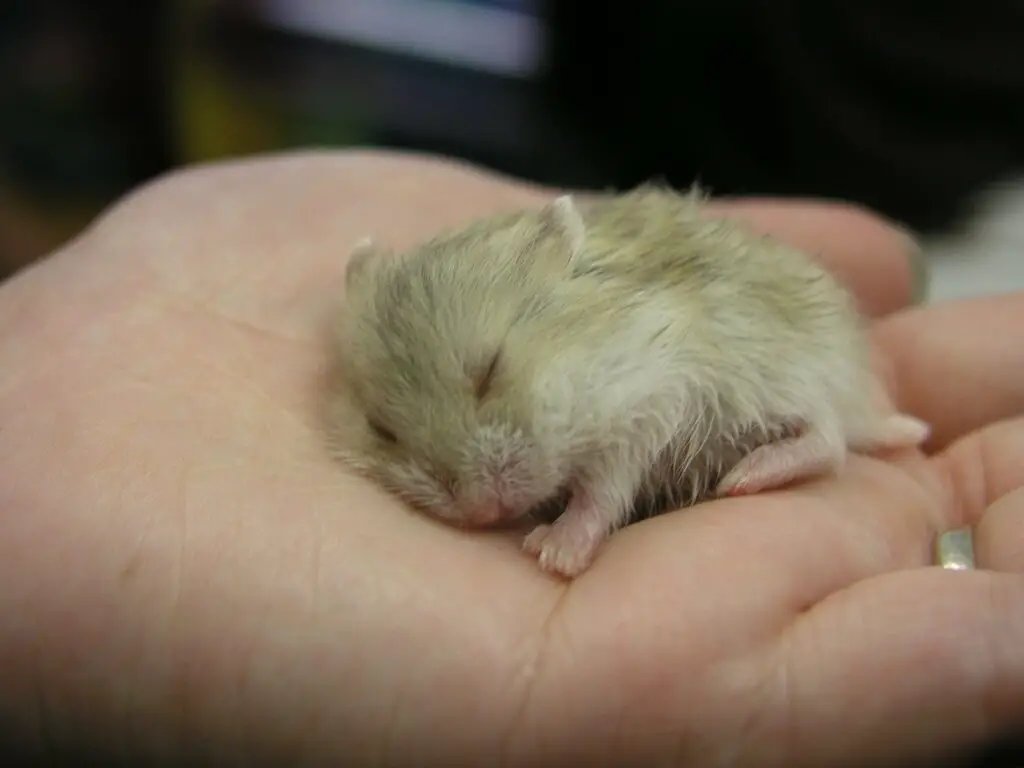
Tumors in hamsters can cause lethargy as the body’s energy and resources are directed towards combating abnormal cell growth, resulting in decreased activity levels and overall weakness.
Tumors can cause a wide range of symptoms in hamsters, depending on the location and size of the tumor.
One common symptom is lethargy, which is when the hamster becomes tired and inactive. This can be caused by the tumor pressing on the hamster’s organs, making it difficult for them to function properly.
In some cases, the tumor may also release toxins into the hamster’s body, causing further fatigue.
If your hamster is showing signs of lethargy, it is important to take them to see a vet as soon as possible so that they can rule out any other potential causes and begin treatment. Left untreated, tumors can be fatal.
3. Decreased appetite
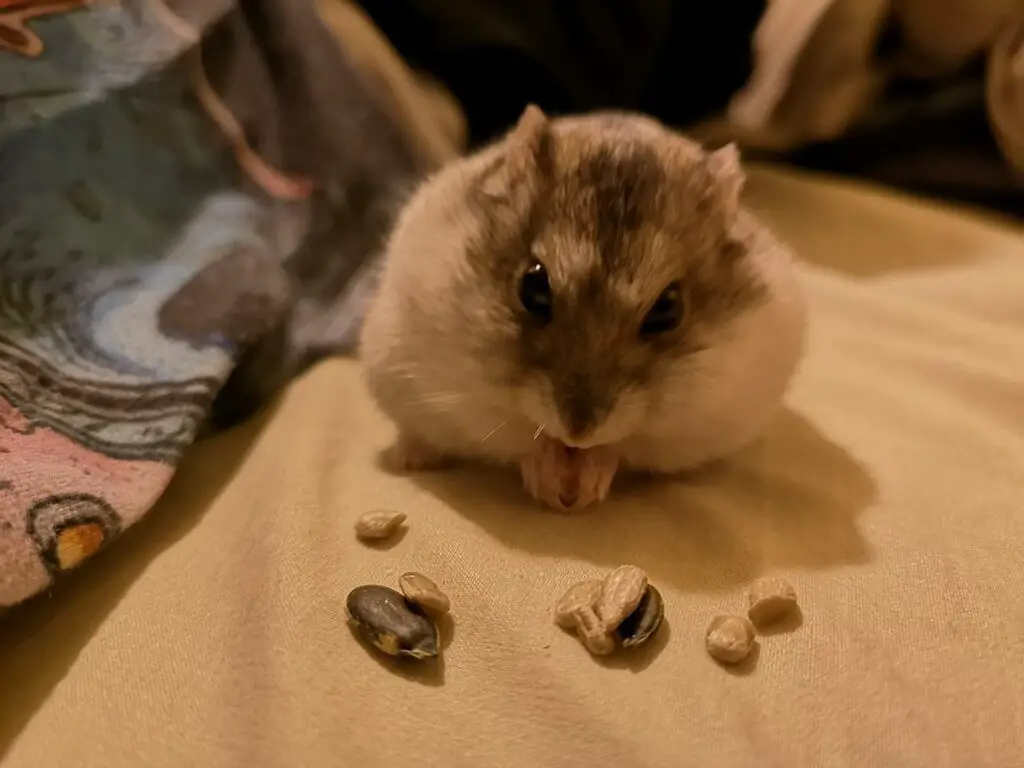
Tumors in hamsters can cause decreased appetite because the body is focusing its resources on fighting the tumor, potentially causing discomfort or pain during eating, or altering the hamster’s metabolic processes.
Additionally, tumors can interfere with the digestive process, making it difficult for the hamster to absorb nutrients from its food. Finally, some tumors produce hormones that can impact the hamster’s appetite.
For example, a tumor might produce excess testosterone, which can lead to increased hunger. However, it is also possible for tumors to produce hormones that have the opposite effect, causing the hamster to lose its appetite.
In any case, it is important to consult with a veterinarian if your hamster has a decreased appetite.
4. Digestive problems, including constipation or diarrhea
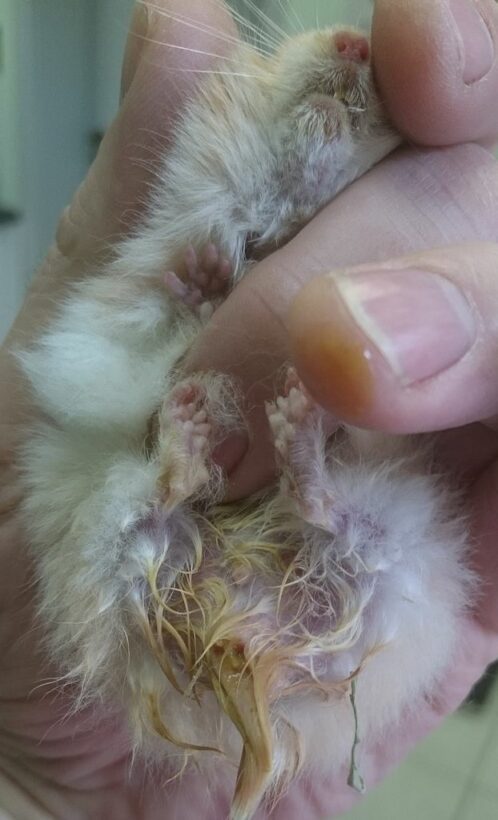
Tumors in hamsters can cause digestive problems, including constipation or diarrhea, as they may disrupt the normal functioning of the digestive system either through physical obstruction or by interfering with the body’s metabolic processes.
Tumors may also produce hormones that can disrupt the normal function of the digestive system, leading to diarrhea.
In some cases, tumors may also cause an overgrowth of bacteria in the intestine, which can lead to an infection. Treatment for digestive problems caused by tumors typically involves surgery to remove the tumor. In some cases, chemotherapy or radiation therapy may also be necessary says WikiHow.
5. Tumors located in the abdomen may cause the hamster to have a distended belly

Tumors located in the abdomen of hamsters can cause a distended belly as the abnormal growth takes up space and expands, pushing against and enlarging the abdominal area.
While not all tumors are cancerous, they can still cause a variety of health problems for the hamster. Tumors can put pressure on the organs, making it difficult for the hamster to breathe or eat. They can also block the intestine, leading to constipation or diarrhea.
A distended belly in a hamster may indicate the presence of a tumor. Tumors can grow quickly and cause the abdomen to swell. In addition, tumors can press on the stomach and intestines, making it difficult for the hamster to eat and digest food properly.
If you notice that your hamster’s belly is larger than usual, it’s important to take them to the vet for an examination. With early diagnosis and treatment, many health problems associated with tumors can be successfully resolved.
6. Tumors can also compress other organs causing additional symptoms such as difficulty breathing
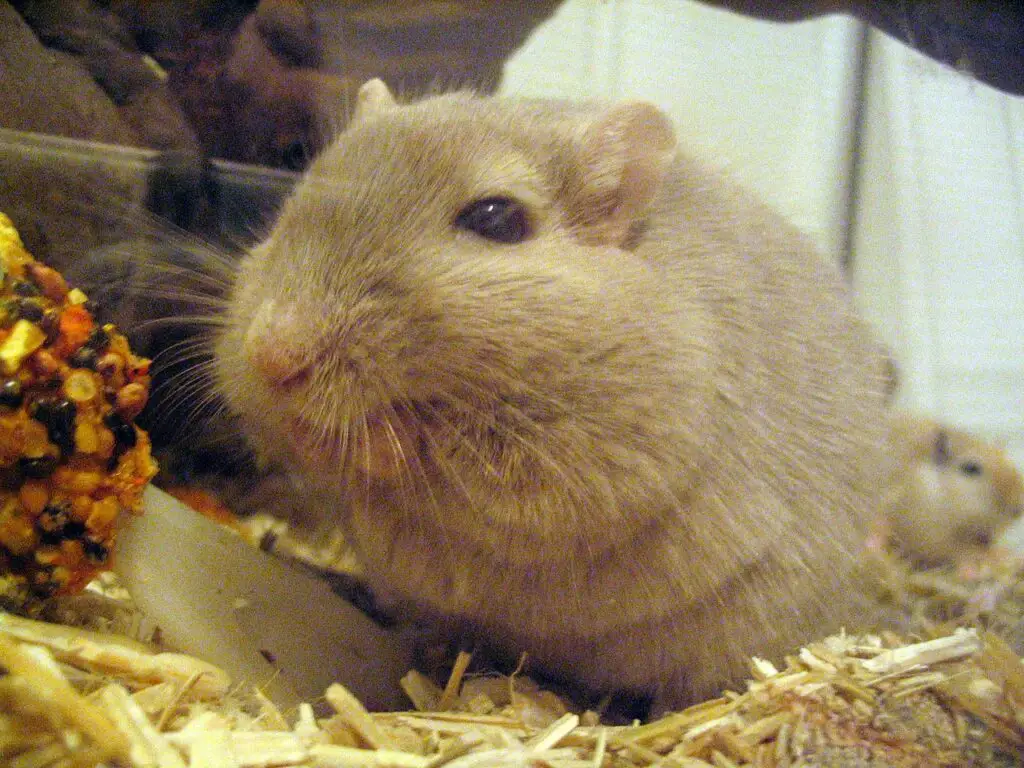
Tumors in hamsters can cause additional symptoms like difficulty in breathing by compressing other organs, such as the lungs, thereby limiting their function and capacity to provide sufficient oxygen.
While tumors can occur in any type of animal, including humans, they are particularly common in hamsters. A tumor can cause a variety of symptoms in hamsters, depending on their size and location.
For example, a tumor in the abdomen may cause bloating or a change in stool consistency. A tumor in the chest may compress the lungs, causing difficulty breathing.
In some cases, tumors may also release hormones that can cause changes in behavior or appearance. If your hamster is showing any signs of illness, it is important to take them to the vet for an examination. Early detection and treatment of tumors can often improve the prognosis says WPVet.
7. Difficulty urinating

Tumors in hamsters can cause difficulty urinating if they are located near or on the urinary tract, physically obstructing the normal flow of urine or pressurizing nearby organs that control urination.
In some cases, the tumor may even block the urethra completely, leading to a complete loss of urine output. This can be a serious problem, as it can lead to dehydration and kidney damage.
If you notice that your hamster is having difficulty urinating, it is important to take him to the vet for treatment. Surgery may be necessary to remove the tumor, and your vet will also be able to provide pain relief and other treatments to help your hamster feel more comfortable.
8. Tumors may bleed causing blood in the stool or vomit

Tumors in hamsters can cause blood in the stool or vomit if they are located in the digestive tract or stomach and have become ulcerated or ruptured, leading to internal bleeding that gets expelled through these routes.
In fact, tumors can occur in any part of the body, but they are most commonly found in the liver, kidney, or spleen. Sometimes, these tumors can bleed, causing blood in the stool or vomit.
Tumors are abnormal growths of tissue that may be benign (non-cancerous) or malignant (cancerous). While hamsters can develop tumors in various parts of their bodies, one common location is in their mouths.
These tumors can cause the hamster to bleed from their mouth. In some cases, the bleeding may be so severe that it requires medical attention.
9. Hair loss
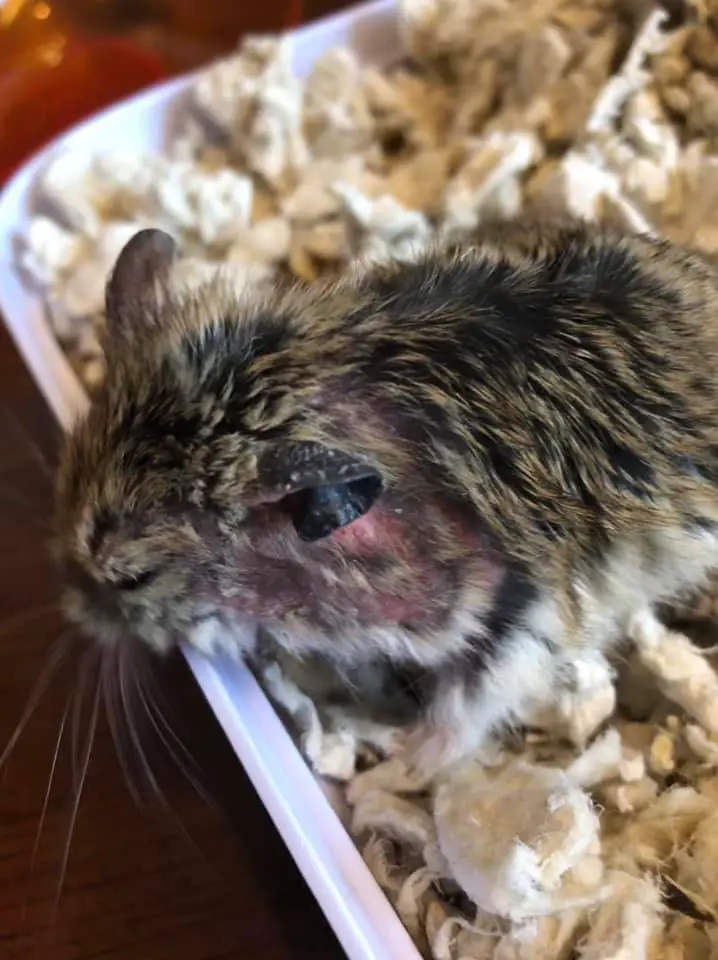
Tumors in hamsters can cause hair loss either through the body’s systemic response to the disease, which can affect hair follicle health, or if the tumor is on the skin and disrupts the normal hair growth cycle.
Additionally, the treatment for tumors (such as surgery or radiation therapy) can also cause damage to hair follicles, leading to hair loss. In some cases, the use of certain medications (such as chemotherapy) may also result in hair loss.
Finally, it is also possible that the stress of having a tumor can lead to hair loss. This is because stress can cause a variety of changes in the body, including an increase in the production of certain hormones that can lead to hair loss says PetMD.
10. Increased thirst
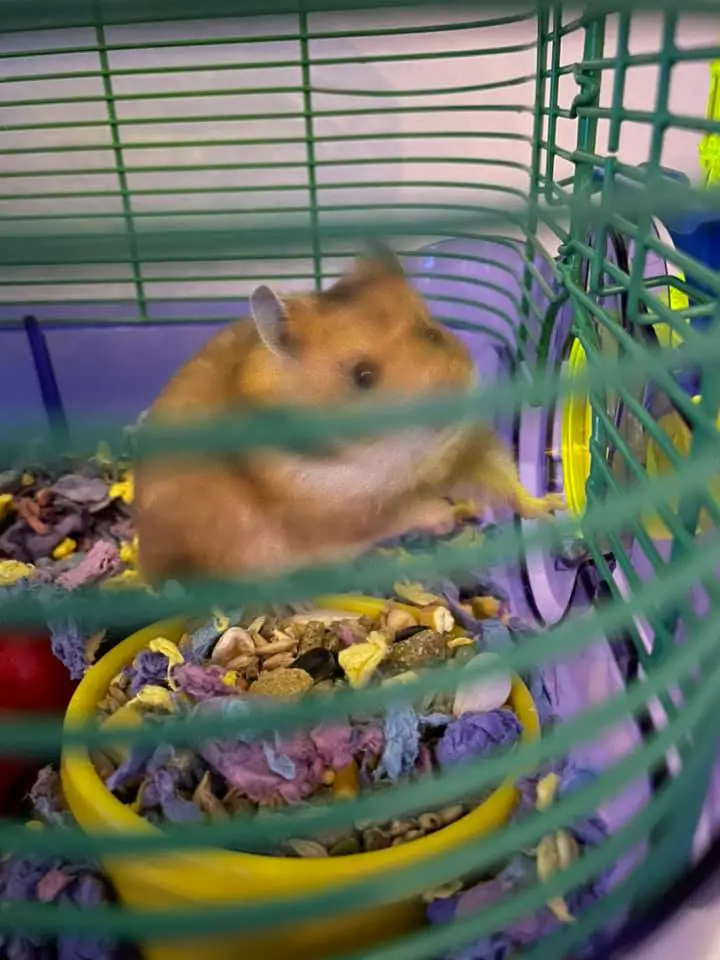
Tumors in hamsters can cause increased thirst if they affect the kidneys or the metabolic system, disrupting the body’s normal fluid balance and leading to excessive thirst as a compensatory mechanism.
This is because tumors can block the passage of urine, causing a build-up of fluids in the body. The kidneys work to remove these excess fluids, but they can only do so much. As a result, the hamster becomes thirsty as the body tries to rid itself of the extra fluid.
In some cases, the tumor may also press on the brain, causing seizures or other neurological problems. If you suspect your hamster has a tumor, it is important to take them to the vet for treatment as soon as possible. Left untreated, tumors can be fatal.
How Are Tumors In Hamsters Diagnosed
Tumors in hamsters are primarily diagnosed through clinical examination, biopsy, and histopathology.
Clinical Examination
As a vet, the first step in diagnosing tumors in hamsters typically involves a thorough clinical examination. I look for any visible abnormalities such as lumps or swelling, and also assess the hamster’s overall health, behavior, and symptoms. This can provide valuable clues about the presence and possible type of tumor.
Biopsy
Biopsy is a crucial diagnostic tool in identifying tumors in hamsters. In my practice, I usually anesthetize the hamster to take a small sample from the suspicious area, which is then sent to a lab for microscopic examination. This procedure helps confirm the presence of a tumor and can also identify whether it’s benign or malignant.
Histopathology
Histopathology involves examining tissues under a microscope to identify diseases. If I suspect a tumor in a hamster, I might use this method to get a detailed picture of the tumor’s structure and behavior. By understanding how the cells are behaving and interacting, I can make a more accurate diagnosis and prognosis.
How To Treat Tumors In Hamsters
Treating tumors in hamsters typically involves surgical removal, hormone regulation for glandular tumors, and experimental treatments such as ethanol injections.
Surgical Removal
In my experience as a veterinarian, the most common treatment for tumors in hamsters is surgical removal. This procedure involves carefully excising the tumor while minimizing harm to the surrounding tissues. The goal is to completely eliminate the growth, as this can prevent the spread of cancerous cells and improve the hamster’s quality of life.
Hormone Regulation for Glandular Tumors
When dealing with glandular tumors, such as those affecting the adrenal or thyroid glands, treatment often involves addressing the hormonal imbalance caused by the tumor. In my practice, I’ve seen how these types of tumors can disrupt the normal balance of hormones, leading to a range of symptoms. Treatment may involve medication to regulate hormone levels and alleviate symptoms.
Ethanol Injections
While still relatively new and experimental, ethanol injections have shown promise in treating tumors in hamsters. I’ve followed the research closely and it’s encouraging to see potential advancements in non-surgical treatments. This method involves injecting an ethanol-based gel into the tumor, which can effectively kill cancer cells.
Considerations for Treatment
It’s important to note that the appropriate treatment for a hamster’s tumor will depend on various factors, including the type and location of the tumor, the age and overall health of the hamster, and the potential risks and benefits of the treatment. As a vet, I always strive to provide the best care possible, tailored to each individual pet’s needs.
How To Prevent Tumors In Hamsters
Preventing tumors in hamsters involves a combination of providing a healthy diet, maintaining a clean habitat, and ensuring regular veterinary check-ups.
Healthy Diet
One way to help prevent tumors in hamsters is by providing them with a healthy, balanced diet. As a veterinarian, I’ve seen how a diet rich in fresh fruits, vegetables, and high-quality hamster food can contribute to overall health and potentially lower the risk of tumor development.
Clean Habitat
Keeping a hamster’s habitat clean is another crucial step in preventing tumors. The cleaner the environment, the less likely your hamster is to develop infections that could potentially lead to the formation of tumors. In my practice, I always emphasize the importance of regular cage cleaning and proper hygiene.
Regular Veterinary Check-ups
Regular veterinary check-ups are key to early detection and prevention of tumors in hamsters. During these visits, I can perform a thorough examination, spot any abnormalities, and address potential health issues before they become serious. Early detection and treatment of tumors can significantly improve the prognosis for your hamster.
Avoidance of Carcinogens
Certain substances, known as carcinogens, have been linked to cancer development in animals. Avoiding exposure to these substances can be an important preventive measure. For instance, smoke from tobacco products can be harmful to hamsters, so it’s best to keep these pets in a smoke-free environment.
How Long Can a Hamster Survive With a Tumor?
A hamster diagnosed with a benign tumor can typically survive between six months to a year, while those with malignant tumors often have a life expectancy of two to three months, depending on the severity and location of the tumors.
As a veterinarian, I’ve observed that the survival rate of a hamster with a tumor largely depends on the type and progression of the tumor.
Benign tumors, which are non-cancerous, usually allow for a longer survival time since they do not disrupt organ functions. If detected early and located in accessible areas, these tumors can often be surgically removed, potentially leading to a full recovery.
However, malignant or cancerous tumors pose a greater threat. These aggressive growths can spread rapidly throughout the body, significantly reducing the hamster’s lifespan to a few months.
The exact survival time can vary depending on factors such as the hamster’s overall health, age, and the stage at which the cancer was diagnosed.
How Common Are Tumors in Hamsters?
Tumors are fairly common in hamsters, with lymphomas being the most frequent type in Syrian hamsters, mammary tumors, atypical fibromas, and papillomas among the prevalent ones in Djungarian hamsters.
In my years of practice as a veterinarian, I’ve often encountered cases of tumors in hamsters.
Lymphomas, a type of cancer that begins in the lymphatic cells of the immune system, are particularly common in Syrian hamsters.
They can affect various body parts including the liver, spleen, and lymph nodes.
On the other hand, Djungarian hamsters frequently present with integumental tumors such as mammary tumors, atypical fibromas, and papilloma.
These tumors pertain to the skin and mammary glands.
FAQs
Q: Are all tumors in hamsters cancerous?
A: Not all tumors in hamsters are cancerous. Some tumors may be benign, which means they are non-cancerous and do not spread to other parts of the body. However, other tumors can be malignant, meaning they are cancerous and have the potential to spread to other organs or tissues.
Q: Can tumors be surgically removed from a hamster?
A: In some cases, tumors can be surgically removed from hamsters. However, the feasibility of surgery depends on factors such as the location of the tumor and the overall health of the hamster.
Q: Can hamsters get cancer of the immune system?
A: Yes, hamsters can develop cancer of the immune system, which is known as lymphoma. Lymphoma is a malignant tumor that affects the lymphocytes, a type of immune system cell.
Q: What are the common locations of tumors in hamsters?
A: Tumors in hamsters can occur in various locations, including the adrenal glands, mammary glands, thyroid gland, and digestive system.
Q: Are certain hamster breeds more prone to developing tumors?
A: While tumors can affect hamsters of any breed, some studies have suggested that certain breeds, such as Syrian hamsters, may have a higher likelihood of developing tumors compared to others.
Q: Are young hamsters at risk of developing tumors?
A: While tumors can affect hamsters of any age, they are more commonly seen in older hamsters. However, young hamsters can also develop tumors, albeit less frequently.
Q: How can I keep my hamster healthy and reduce the risk of tumors?
A: To keep your hamster healthy and reduce the risk of tumors, make sure to provide a balanced diet, clean housing, and regular exercise for your pet hamster. Regular check-ups with a veterinarian who specializes in small animal care are also recommended.
Conclusion and final thoughts
In conclusion, it is important for all hamster owners to be aware of the potential symptoms of tumors in their pets.
Early detection and treatment can greatly improve the chances of a successful outcome. Regularly monitoring your hamster’s health and seeking veterinary care if any concerning symptoms arise is crucial in ensuring their well-being.
By being informed about the signs of tumors in hamsters, you can provide the best care and support for your furry friend.

